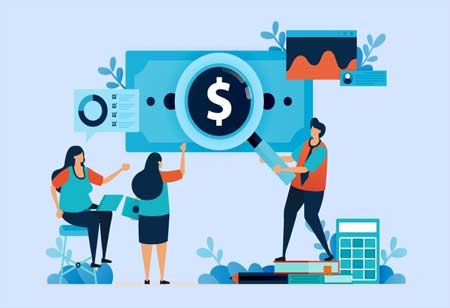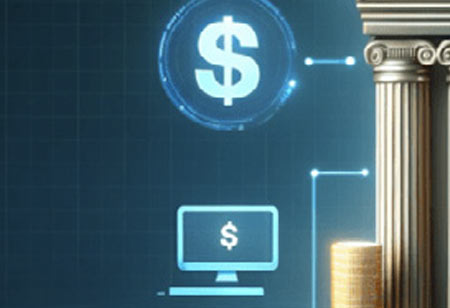THANK YOU FOR SUBSCRIBING

By
Banking CIO Outlook | Tuesday, December 03, 2024
Stay ahead of the industry with exclusive feature stories on the top companies, expert insights and the latest news delivered straight to your inbox. Subscribe today.
Fintech companies can obtain a complete picture of a customer's economic behavior. It puts this sector in an ideal position to build an alternative to an archaic system, enabling a more agile pricing model and better, faster decision-making than the incumbents.
FREMONT, CA: Millions of Americans are "unbanked" or "underbanked," meaning they do not have a bank account or cannot access the full range of financial services their bank offers to establish credit and plan for the future. Before the pandemic, the Federal Reserve estimated that 22 percent of adults, or approximately 60 million individuals, fell into this category. These numbers have probably increased because of the pandemic.
The unbanked population consists of some of the hardest working individuals in the country, including critical workers and those who keep the supply chain flowing, particularly young workers and new immigrants. Traditional banks cannot access these consumers' financial information; thus, they cannot generate FICO or credit scores.
The Problem With Being Unbanked
Why are so many individuals bankless? They have not had sufficient time to show a stable credit history. Due to their lack of credit history, traditional banks are hesitant to serve many first-generation immigrants who distrust banks or have inadequate English proficiency. Others are college students and young people attempting to avoid bank costs. Some customers may need a second opportunity after having accounts canceled or other complications occur owing to a lack of bank-related experience.
Regardless, individuals in this condition lack access to financial services and cannot establish a credit history, making them susceptible to fraud, predatory lenders, and the physical risk of carrying large quantities of cash. Consumers frequently deal with dishonest sellers who offer inferior goods and charge exorbitant interest rates when they buy a large item like a vehicle or appliance. They are likely spending significantly more to cash checks, get money orders for payments, and pay loan interest than they would on banking costs.
This demography is both employed and taxpaying. The purchasing power of non-U.S.-born taxpayers exceeds $1 trillion, and every fifth small firm in the country is held by an immigrant, contributing an additional $1.5 trillion in sales to their economic effect. But because banks disregard them, they have no other options. So, despite their hard work, they do not advance. This vicious loop is being altered through fintech.
Fintech To The Rescue
Taking a novel approach to an old problem, tech firms are disrupting the financial services industry. Consumers are interested in app-based services, such as the option to utilize Apple, Google, and Samsung mobile wallet services for secure in-store and online shopping. Consumers will be willing to pay a reasonable subscription fee to access financial services that do not require credit checks, minimum balances, or overdraft penalties.
Fintech companies are filling the voids created by traditional banks in numerous ways, notably by providing investment options. Unbanked individuals now have access to investment apps that enable them to open accounts without a minimum balance and engage in commission-free stock trading. There are also fintech applications that enable users to open a secure line of credit against a portion of their savings, thereby assisting them in establishing a credit history. Other fintech applications help immigrants with an established credit history in another country to transform their international credit data into a format that U.S.-based underwriters can use to assess creditworthiness.
THANK YOU FOR SUBSCRIBING
Be first to read the latest tech news, Industry Leader's Insights, and CIO interviews of medium and large enterprises exclusively from Banking CIO Outlook
I agree We use cookies on this website to enhance your user experience. By clicking any link on this page you are giving your consent for us to set cookies. More info



